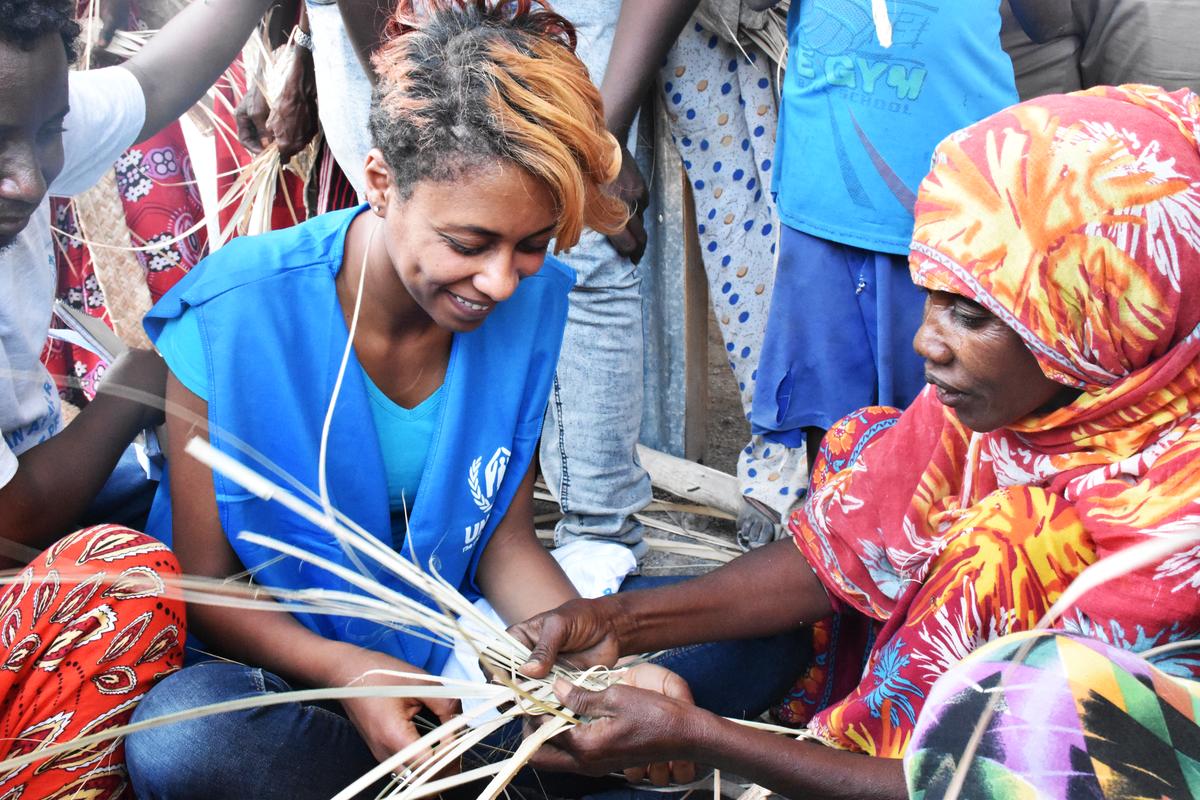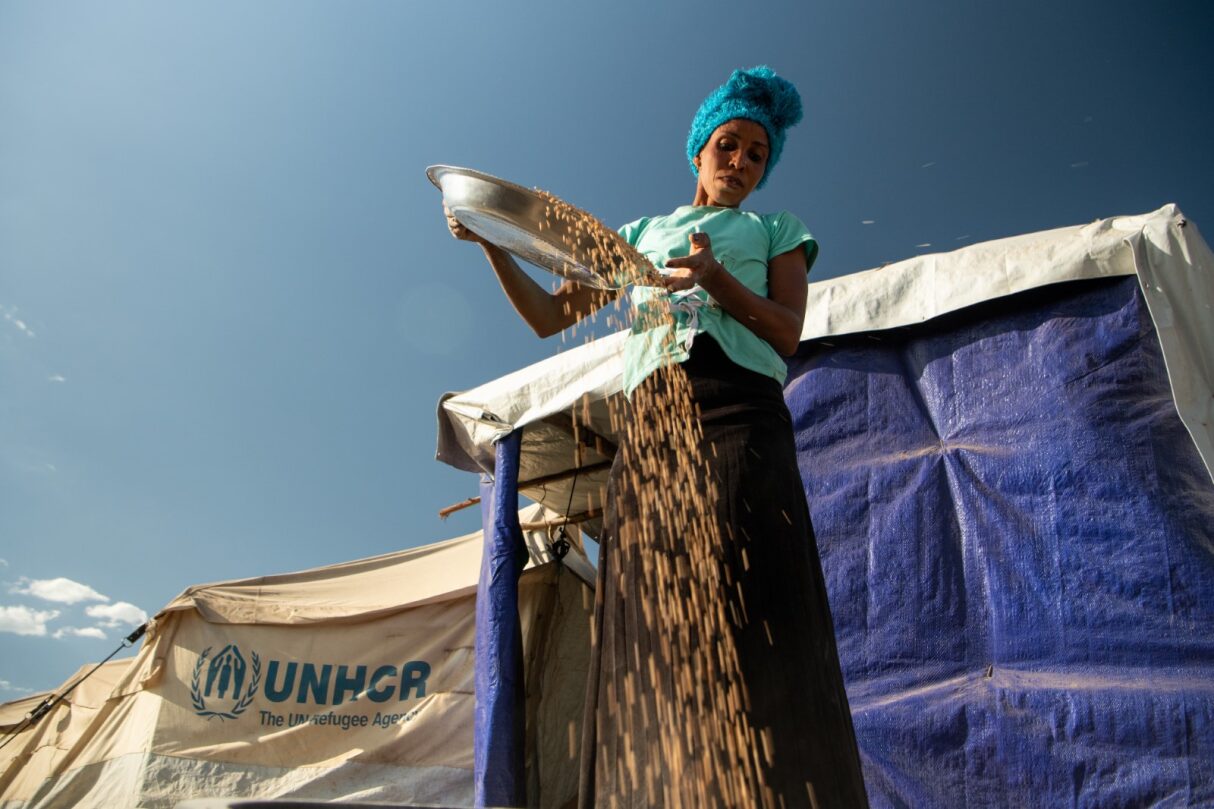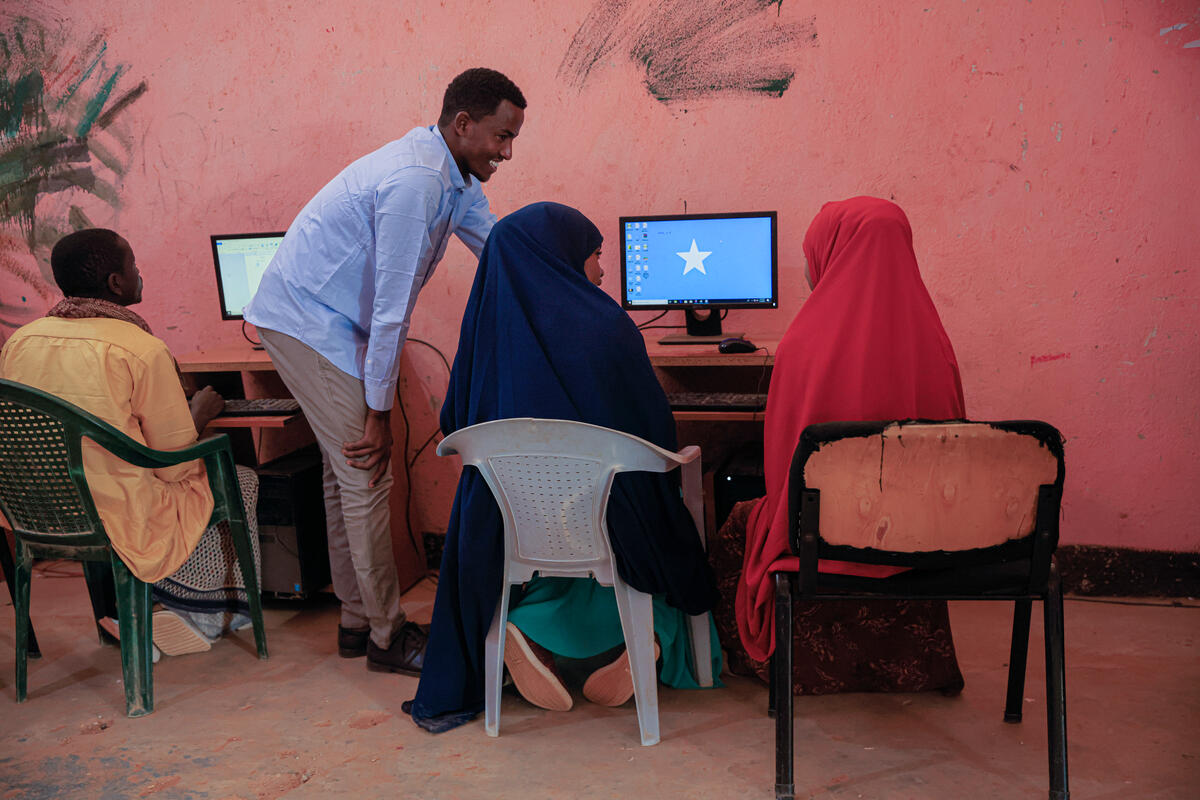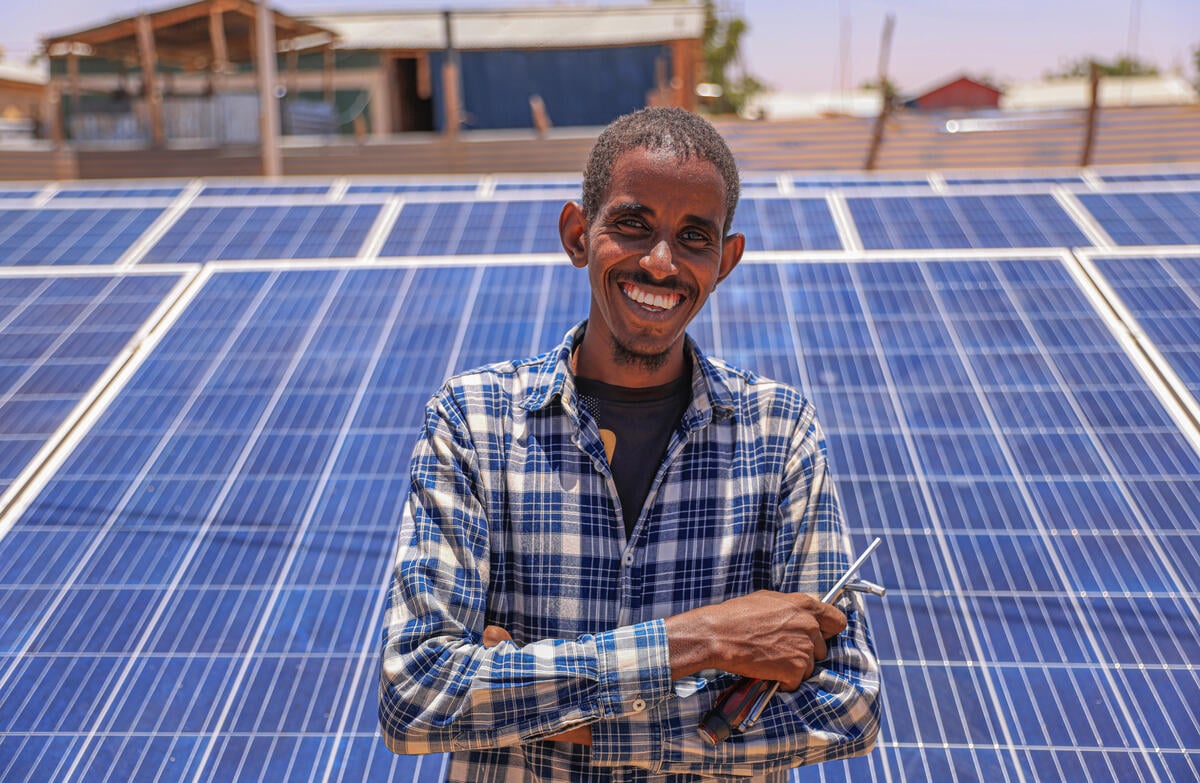Singer Betty G. reaffirms advocacy for refugees' rights in Ethiopia
ADDIS ABABA, Ethiopia - UNHCR High Profile Supporter and singer, Betty G. has recommitted her voice to refugees, with a focus on refugee women, following a trip with UNHCR, the UN Refugee Agency, to a remote refugee camp in Ethiopia’s Afar Region.
The Ethiopian singer, returning from Aysaita refugee camp, headed to Accra, Ghana where she won three awards at the AFRIMA 2018 Awards: Album of the Year, Revelation of the Year and Best Female Artist in East Africa.
UNHCR’s Representative in Ethiopia, Ms. Clementine Nkweta-Salami congratulated Betty G on her great success, which she said shines a light on the great work she is doing with refugees.
“This is just the beginning of a long and fulfilling journey in Betty G’s illustrious career,” she said. “We are tremendously proud to have her as our High Profile Supporter and deeply appreciate her invaluable support in raising the voices of refugees in Ethiopia and beyond.”
In Aysaita, Betty G met and discussed with representatives of the more than 15,000 Eritrean refugees in the camp, half of whom are female. Refugee women, who are members of the camp’s ‘Women’s Association’ told her about the challenges they face, including limited assistance and livelihoods options, girls being forced to drop out of school to help with domestic chores and threats of gender-based violence.
“I recommit to advocate on your behalf and on behalf of other refugee women elsewhere in Ethiopia.”
“I recommit to advocate on your behalf and on behalf of other refugee women elsewhere in Ethiopia and to support you to overcome your challenges and build a better future,” said Betty G as she applauded their efforts to be self-sufficient.
The association is part of the refugee community’s structure, ensuring the participation of women in decision making within the camp.
Funding shortfalls are of grave concern to UNHCR’s operations in the camp, according to John Kilowoko, the Head of UNHCR’s field office in Mekelle, which oversees Barahle and Aysaita camps.
“Limited funds are hampering our delivery of basic services and thus compromising the protection standards for refugees and support to the generous host communities in Afar,” he said.
He called for additional funds to build more shelters and latrines, upgrade water systems, improve health care, promote household energy and essential aid items.

Betty G also visited women who have organized themselves in self-help groups and engage in small-scale businesses like making and selling mats out of local materials, running cafeterias and shops. UNHCR and its partners train refugees on business practices and savings and help start small savings and loans associations. Some have also been enrolled in a ‘Functional Adult Literacy programme’, learning to easily identify letter and numbers.
“I’m amazed by these women.”
Some of the women told Betty G that they were now able to increase their families’ income and complement their monthly food ration entitlements. The increase in income has encouraged some families to send their children to school instead of engaging them in child labour.
“I’m amazed by these women,” said Betty G, visibly impressed by their efforts. “They have been forced to flee and passed through a lot but they still find the courage and strength to learn new skills, find new ways to make a living and help their families achieve a better future.”
Ethiopia hosts more than 900,000 refugees, including nearly 174,000 Eritreans in six camps.
Betty G was named UNHCR’s High Profile Supporter in 2017 and has since then advocated for refugees in Ethiopia, including through visits to camps hosting South Sudanese and Eritrean refugees.










